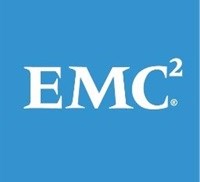
Top stories






More news


Marketing & Media
Ads are coming to AI. Does that really have to be such a bad thing?














With research and analysis by IDC, it reveals how the emergence of wireless technologies, smart products and software-defined businesses are playing a central role in catapulting the volume of the world's data. Due, in part, to this Internet of Things, the digital universe is doubling in size every two years and will multiply tenfold between 2013 and 2020 - from 4.4 trillion gigabytes to 44 trillion gigabytes.
The Internet of Things comprises billions of everyday objects that are equipped with unique identifiers and the ability to record, report and receive data automatically - a sensor in your shoe tracking how fast you run or a bridge tracking traffic patterns.
According to IDC, the number of devices or things that can be connected to the Internet is approaching 200 billion today, with 7% (or 14 billion) already connected to, and communicating over, the Internet. The data from these connected devices represents 2% of the world's data today. IDC now forecasts that by 2020 the number of connected devices will grow to 32 billion - representing 10% of the world's data.
The Internet of Things will also influence the massive amounts of "useful data" - data that could be analysed - in the digital universe. In 2013, only 22% of the information in the digital universe was considered useful data, but less than 5% of the useful data was actually analysed - leaving a massive amount of data lost as dark matter in the digital universe. By 2020, more than 35% of all data could be considered useful data, thanks to the growth of data from the Internet of Things, but it will be up to businesses to put this data to use.
This phenomenon will present radical new ways of interacting with customers, streamlining business cycles and reducing operational costs, stimulating trillions of dollars in opportunity for businesses. Conversely, it presents significant challenges as businesses look to manage, store and protect the sheer volume and diversity of this data. For example, IDC estimates that 40% of the data in the digital universe require some level of protection, from heightened privacy measures to fully encrypted data. That said, only half of that data - just 20% - is actually protected.
Other key findings:
"As more and more businesses capitalise on the social and mobile phenomenon, the enormity and potential of the digital universe grows, and businesses are presented with greater opportunities to analyse new streams of data and gain more value from the data they already have. Simply put - companies of all types are shape shifting into software-defined enterprises right before our eyes. While the potential is massive, the implications are equally daunting. IT departments must press the restart button to find new ways to innovate around existing infrastructure while positioning themselves to dive into a future of third-platform computing," said Servaas Venter, country manager of EMC southern Africa.
"The Digital Universe and The Internet of Things go hand in hand. As sensors become connected to the Internet, the data they generate becomes increasingly important to every aspect of business, transforming old industries into new, relevant entities. Traditional storage services will be elevated to new levels of resilience and tolerance to support the Digital Universe, which can only be guaranteed in a software-defined environment," said Vernon Turner, senior vice-president of IDC.